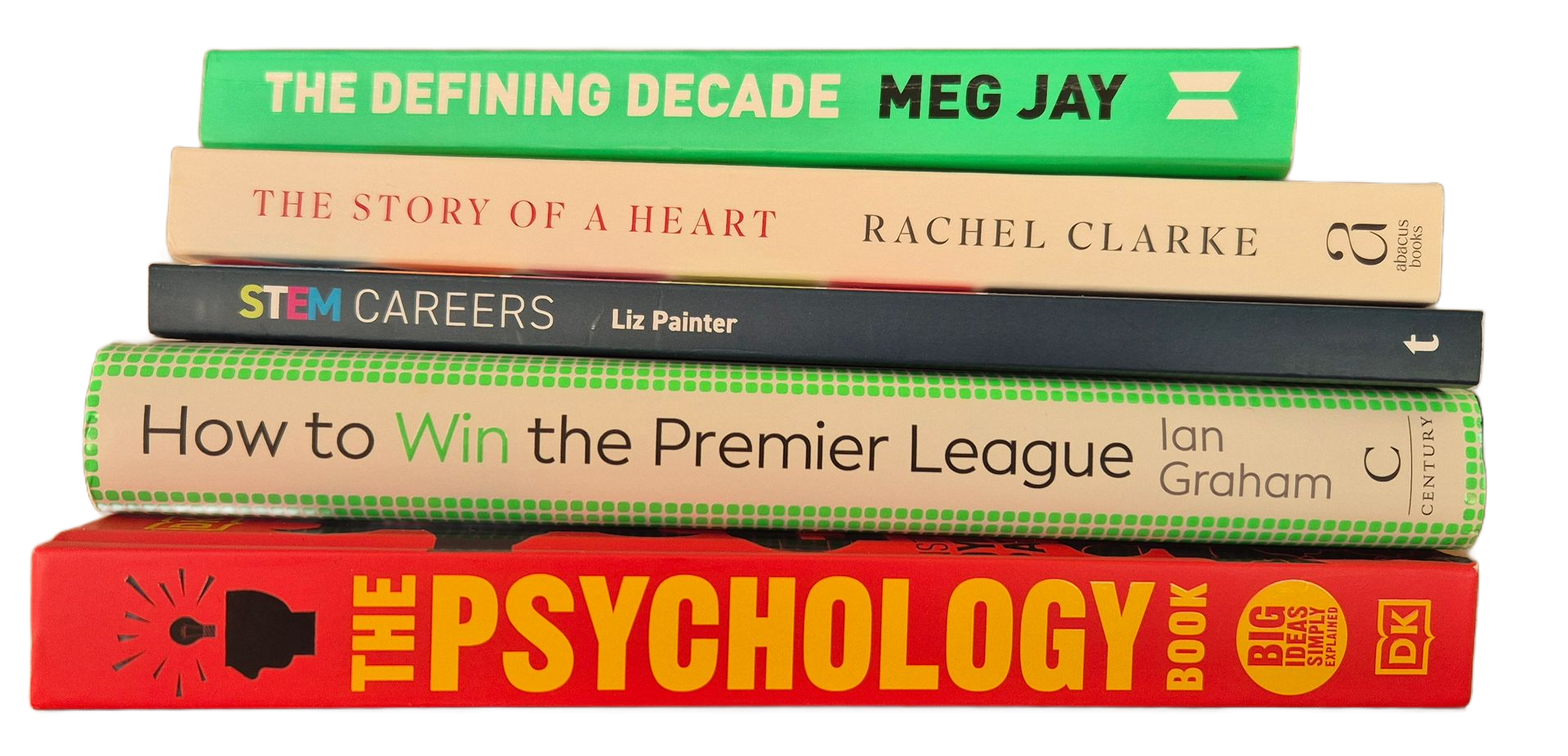Inspiring teenagers to make their best career & college decisions
How can parents best support teenagers to reflect and explore the variety of career and college options open to them while balancing their son or daughters' need to figure it out for themselves and take ownership for their decisions?
Last weekend, I attended a regional careers fair in Castlebar and delivered a workshop to adolescents and their parents who were struggling with the dreaded question: “So what are you going to do after school?”
When my eldest son was in his senior cycle (16 to 18 years old), despite having many years of experience in HR and People Development roles in Tech, Engineering and Service sectors, I often struggled with our conversations about his college and career decisions.
I wanted to encourage him to look at a broad spectrum of careers and understand why they may, or may not, be a good fit for him. He wanted to spend any spare time with friends or playing sports. He was clear on what he didn’t want, and was keen to keep all his future career options open. I wanted to ensure he made the right course choice, first time, and we could avoid the financial burden if course changes or postgrad studies were later required.
His college experience had a few bumps along the way, primarily because of subject choices, but he got there and successfully graduated with an Arts Degree before moving into Accountancy and is now happily working in New York. Thankfully, he was accepted onto a Graduate Program in his final year; got sponsored to do his Postgraduate studies and although his younger self was sure he didn’t want a 9-5 office job, he is enjoying the variety of work in Financial Consulting.
From a young age, teenagers need to be encouraged to think and talk about the different career options available to them. However parents are wary of interfering too much. Nobody wants to be a helicopter parent or a tiger mum. So how can we find the balance between giving our teenagers the space and time they need to figure things out for themselves while at the same time supporting them to make the best choices?
Here are some tips to help parents support their teenage children to explore the best college and career options for them.
INSPIRE:
Don’t take the lead for your teenager by
deciding for them what careers they should (or you would like them to)
investigate. Instead, encourage them to explore as many different options as
possible initially.
Encourage them to start associating people they know with different
careers. These can be TV characters, friends, family members, local
business owners or tradespeople. Or their interest might be sparked by
what some of their older friends or family are studying in college.
What’s important at this stage is that you don’t take control of the process and bombard them with career titles and job descriptions. Let them explore careers that sound attractive and interesting to them.
SHARE:
Discuss your own career with your children. Do they know exactly what you do and what you like and dislike about your job? Think about:
- As a child, what did you want to be when you grew up?
- Talk about your interests and how these have impacted your career development.
- If you attended college; why did you choose your particular course and how did you enjoy it.
- What jobs have you had over the years and what did you learn from each of them? Identify the positives and negatives but try to frame the negatives in terms of what you learned from the experience.
- Talk about what you are passionate about in your job, what energises and engages you in the workplace, what gives you a sense of accomplishment.
- Talk them through your career decisions over the years. Think about job changes, promotions, the good moves you made and the not-so-good ones.
Use career related language as you discuss your career. Talk about the importance of a well-crafted CV, application forms, job descriptions, performance appraisals, compensation packages and promotions. Encourage your teenager to write their own CV so they can start identifying the skills, experience and qualifications they already have. They may be surprised at what they’ve already achieved.
EXPLORE:
Rather than naming careers you think might suit them; it’s better to start by identifying their skills, preferences and interests. Some good questions to start with include:
- What are your skills? What kind of things are you good at? Think about both at school and at home. If your child has worked part time, volunteered or did some work experience; what tasks did s/he do and what did s/he learn?
- What are your interests? What do you enjoy doing in your spare time? What would you do for free? Consider music; reading current affairs; building models; watching history programmes; etc.
- What are your unique personal qualities? What makes you different from some of your friends? This could be confidence around others; making presentations; helping others with their homework; practically minded; etc.
IDENTIFY:
When we use our strengths at work, it increases our likelihood of success and happiness in our career. It is much easier for parents to recognise what their children’s strengths and weaknesses are, so regularly identify and praise them for what they are good at. Talk about how they feel when they are doing something that is a natural strength? Are they energised, engaged and focused? Does time fly by?
Then discuss what type of careers might be a good match for their strengths. Brainstorm with them on this, rather than identify the careers directly. For example, ‘doing detailed research and distilling it clearly for others to understand’ is very useful within law, but equally so in the fields of journalism, business and politics. If you define a career for your teenager, it limits the possibilities and discourages them from thinking outside the square. So don’t box them in and encourage them to explore further.
RESEARCH:
The world of work is changing rapidly and many parents have a limited view outside of their immediate career. Encourage your children to use their devices to explore career opportunities. Be sure to refer them to the very useful Irish and UK websites which provide detailed information on occupations, future skills needs, earnings potential and more. Check out Careers Portal and The National Careers Service, UK.
Support your child to explore all options after their Leaving Certificate or senior cycle. In addition to applying to the universities and colleges through the CAO , talk about other options including further education training , Apprenticeships , European universities and private education organisations.
Taking a focused year out is also another option, where they may travel or get a job where they can build skills and experience which will help clarify the direction they want to take their career in.
ENGAGE:
Once they have started to narrow down the list of potential career possibilities, it’s time to engage and leverage your network of friends, family and colleagues. They will be able to identify people working in the career or industry your child is interested in. Ask them to introduce you.
Once you have made the initial connection, then help your child to email or call the contact to set up a meeting to get more information and a better understanding of what’s involved in the job. It’s very tempting to schedule and attend the meeting yourself but resist the temptation. This is all part of building confidence for their future, as well as enabling your child to develop skills in research and information gathering.
SUPPORT:
Sometimes children require additional help to identify, evaluate and make the best decisions for their futures. There are a range of options out there for them. Encourage them to set up a one to one session with their school guidance counsellor or engage the help of an experienced careers consultant who will engage and inspire your child.
A t Career Navigation Consultants, our team
have years’ of experience working in HR & People Development roles across
multiple industries so we know careers, development paths and how to guide
people towards success.
We work with teenagers from 15 years of age and use a mixture of coaching exercises, questioning and assessments to reveal students' interests, aptitudes and strengths and match these to potential career fields. We provide an in-depth report on the best subjects, course options, and careers while also debriefing parents after the career consultation. A Careers Consultant is independent, impartial, and helps students make informed decisions about their future.











